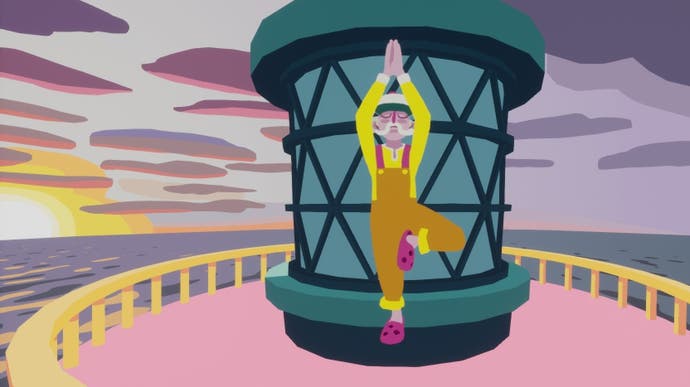2020's best games enlightened and transported
Christian Donlan's games of 2020.
Editor's note: Take a breath. We're almost there. 2020's been quite the year, and it's very nearly over. Across the festive break, members of the Eurogamer team and our contributors will be running down their personal top five games of 2020, before we announce our game of the year - and before, of course, we hand over to you for the annual Reader's Top 50. Thanks for being with us this year, and see you on the other side.
Where are games travelling? For me, this year, they were travelling inward. Spelunky 2, of course, heading deeper and darker, offering more complexity and more mystery, more dangers to think about down there, and more wonders! All of it driven by clockwork so brilliant that it does not need much in the way of additional complications. Inward for Umurangi Generations, too, a team exploring its own culture to thrilling and generous effect. Never has travelling inwards seemed like so much of a gift.
Onwards and inwards, though. How do you make a game about the inwards territory of death? If you're I am Dead, you make it anything but sombre. You bathe it in Clarice Cliff colours and send us into a pocket universe armed with a fearsome curiosity. How do the dead feel about the living? A kind of nosy envy, a greediness to understand the people left behind and make sense of their worlds, to touch the surfaces of the world one last time. It helps that being dead sort of turns you into an MRI and allows you to slice through objects to peek inside.
But at the most inward point, two games that I will simply never forget. One is Eric Chahi's Paper Beast, which travels right to the centre of this singular man's singular imagination and preoccupations - wildlife and the forces of nature, digital representation, other worlds. You put on a VR helmet to play Paper Beast as it's intended, and the wonder of the man's internal life erupts all around you - cathedral-boned monsters gravely wobble onwards through the desert, deeper, further, seeking the interior.
And Before I Forget. How do you explain neurological disease to people who don't have it? Neurological disease, a thing so personal and internal that it seems utterly unshareable? You focus on the person, and you set the disease in the context of a life that has many other things in it. You allow disease its power - it would be trite and misleading not to - but you also put it in its place.
That's why Before I Forget is so astonishing, I think. It heads inwards and inwards and inwards, exploring the frightening, personal landscape of the mind, but it leaves you with a sense of airiness, the wonder of human potential and capability. What can we do? We can understand. That's where games are travelling. That's the destination.









